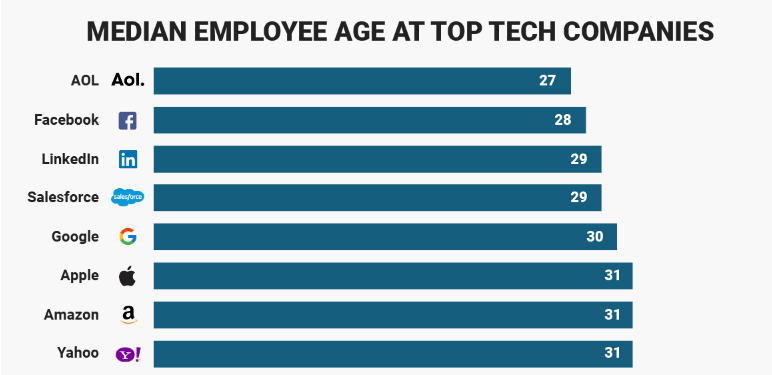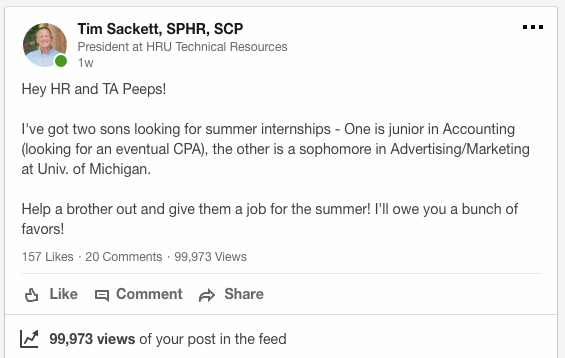Like my Gen-Z counterparts, social media has been a part of my life from a very young age. Unlike many of my fellow Gen-Zer’s, I may have less Twitter followers than one of my parents, but I like to think my knowledge of social media is up with the rest of them.
Social media branding can be a make or break asset for companies. Too much advertising can make you seem old-school or unapproachable, but too little activity will make you seem irrelevant. It is absolutely vital to create a brand through social media in order to appeal to Gen-Z. Here’s the lowdown on each major social media platform and how to use them for the greatest success:
- Twitter: Twitter allows for the greatest interaction between you and your potential employees. I recommend to maintain a large and active Twitter presence and do your best to interact with people or current events/trends, rather than posting only ads about your company. (Look at Wendy’s Twitter interactions for an example).
- Facebook: While Facebook’s influence is still the largest of all other platforms, Gen-Z is not the most active on this site. We may all have profiles, but we are not as active on this as other sites, like Twitter and Instagram. I would keep a steadily active presence, but focus your Gen-Z branding efforts on the other platforms.
- Instagram: This one is tricky. Although it’s my favorite social media site, the little interactivity amongst users makes it difficult to recruit. I would focus your video content here since Instagram and Instagram stories are widely used for short video clips and it is an easy way to find a Gen-Z following.
- Snapchat: All I have to say is STAY AWAY. Please do NOT try and recruit people on Snapchat. Not only is it awkward, it is not the place people go to in order to look for a job. The only feature that is usable for recruiting efforts is the stories feature, and I would recommend using this on Instagram instead.
- YouTube: Like I said in my last article, go crazy on YouTube. Get that video content going and go share it on Instagram, Facebook, Twitter etc. Utilize YouTube to the best of your ability and it may result in big success.
While I may not know a lot about HR, I know a lot about social media and Gen-Z. Social media can seem very daunting, but all it takes is a little effort and a little personality. Try to be different. It will be evident if you are making an attempt to brand yourself over social media and Gen-Z will realize that. We’re not all social media crazed monsters like our parents want you to believe. I promise.
Let me know what you think about social media branding in the comments! What’s working for you? What isn’t!?




